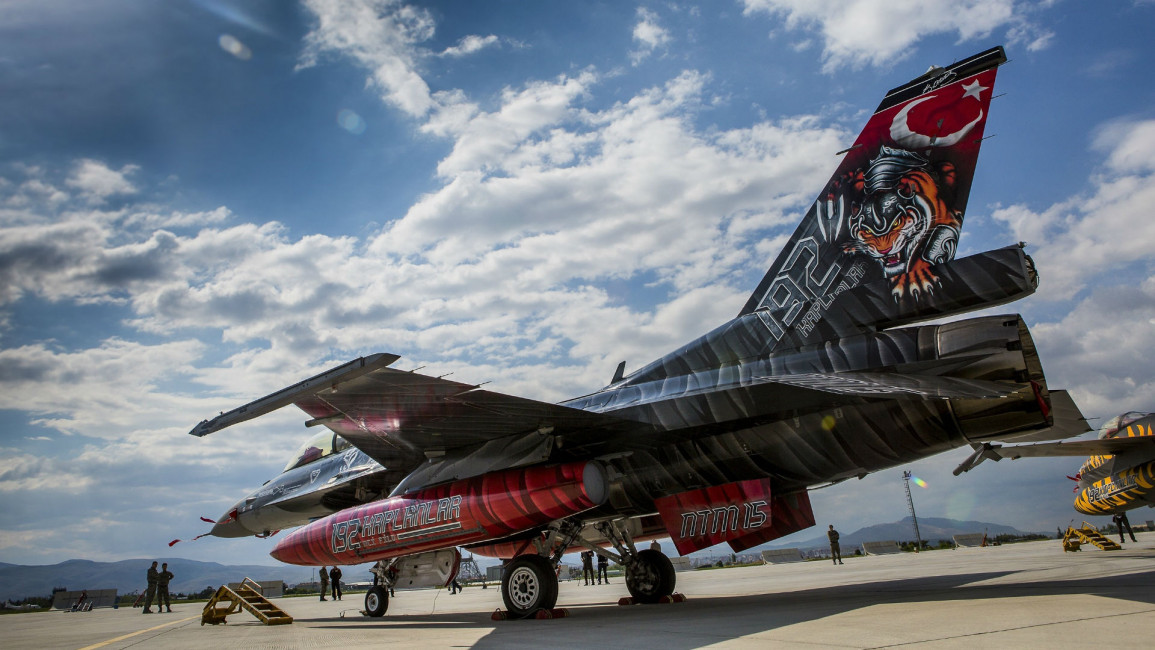Turkish special forces pursue PKK militants in northern Iraq
Turkey has launched a ground incursion into northern Iraq against the Kurdistan Workers' Party (PKK) on Tuesday following a massive wave of air strikes, as Kurdish militants were blamed for an attack that killed 14 police in eastern Turkey.
A senior Turkish official said Turkish special forces has crossed into northern Iraq to pursue Kurdish militants.
"This is a short-term measure intended to prevent the terrorists' escape," added the official, without specifying the timing of the incursion.
The Dogan news agency said two units of the Turkish special forces, supported by warplanes, were chasing two 20-strong groups of PKK militants.
The 14 police were killed in the eastern region of Igdir in a bomb attack by PKK militants on a minibus taking them to the Dilucu border post with neighbouring Azerbaijan, the state-run Anatolia news agency reported.
Turkish warplanes launched a massive air operation early on Tuesday against the PKK positions in northern Iraq, killing as many as 40 rebels, the state-run Anatolia news agency said.
More than 50 Turkish jets were involved in the six hours of raids, killing "35 to 40 terrorists according to preliminary findings", Anatolia said.
Thirty-five F-16 jets and 18 F-4 phantoms took part in the heavy raids on a score of PKK targets, according to the news agency.
| The mountains of this country, the plains, highlands, cities, will be not abandoned to terrorists - Prime Minister Ahmet Davutoglu |
The attack come two days after 16 Turkish soldiers were killed in a twin roadside bomb attack in Daglica in the southeastern region of Hakkari, according to the army, the deadliest strike in the current phase of the conflict.
"These terrorists must be wiped out from the mountains," Prime Minister Ahmet Davutoglu said on Monday.
"The mountains of this country, the plains, highlands, cities, will be not abandoned to terrorists," he said.
The PKK, known for sometimes exaggerating the death tolls of its attacks, said 31 Turkish soldiers had been killed in Sunday's gun and bomb attack in Daglica.
Turkey has staged repeated airstrikes and ground operations against the PKK in its strongholds of southeastern Turkey and northern Iraq in a bid to inflict a mortal blow its capacities.
But the PKK has hit back, killing dozens of Turkish police and soldiers in almost daily attacks, with the bloodier attacks marking a new intensification of the conflict.
A peace process in tatters
The violence has left in tatters a 2013 ceasefire aimed at allowing a final peace deal to end the PKK's three-decade long insurgency, which has claimed tens of thousands of lives.
The PKK initially took up arms in 1984 with the aim of establishing an independent state for Turkey's Kurdish minority, although lately its demands focused on greater autonomy and rights.
Commentators have expressed alarm that the current situation increasingly resembles the worst days of the PKKs insurgency in the 1990s, when attacks on this scale were commonplace.
In a scene that has become familiar over the last weeks, Davutoglu will later Tuesday attend a funeral ceremony for the soldiers killed in the Daglica attack in the eastern city of Van.
The unrest comes at an explosive time in Turkey, as the country prepares to hold snap elections on 1 November following June polls where President Recep Tayyip Erdogan's ruling party lost its overall majority as a pro-Kurdish party made a major breakthrough.
Davutoglu said the elections would be held under "democratic conditions" and urged the country's political forces to stand "shoulder to shoulder" in a show of unity.
The co-chair of pro-Kurdish Peoples' Democratic Party (HDP), Selahattin Demirtas, called for peace between Turks and Kurds.
"I am calling on all my brothers. No matter what they do... do not harm our brotherhood," Demirtas told reporters.
"Kurds, Turks embrace each other. The best medicine against all the provocations is peace."
Iraqi minister kidnapped
In another development in Iraq on Tuesday, Gunmen kidnapped a deputy Iraqi justice minister in northeastern Baghdad , security officials said.
The kidnapping took place in the Binook area of the capital, according to the officials, who did not give the deputy minister's name.



